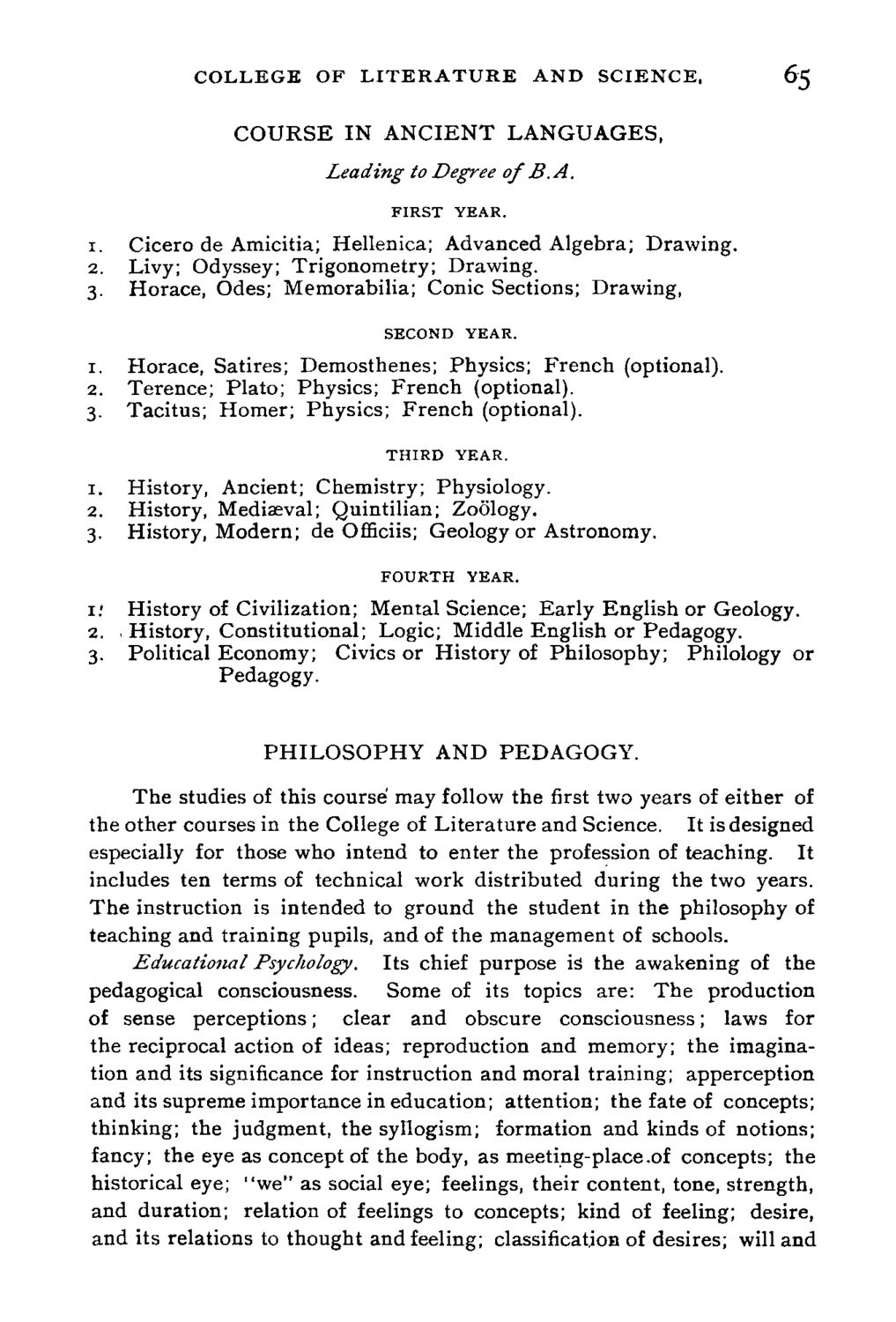| |
| |
Caption: Course Catalog - 1890-1891
This is a reduced-resolution page image for fast online browsing.

EXTRACTED TEXT FROM PAGE:
COLLEGE OF LITERATURE AND SCIENCE, COURSE IN ANCIENT LANGUAGES, Leading to Degree of B.A. FIRST YEAR. 65 1. Cicero de Amicitia; Hellenica; Advanced Algebra; Drawing. 2. Livy; Odyssey; Trigonometry; Drawing. 3. Horace, Odes; Memorabilia; Conic Sections; Drawing, SECOND YEAR. 1. Horace, Satires; Demosthenes; Physics; French (optional). 2. Terence; Plato; Physics; French (optional). 3. Tacitus; Homer; Physics; French (optional). THIRD YEAR. 1. History, Ancient; Chemistry; Physiology. 2. History, Mediaeval; Quintilian; Zoology. 3. History, Modern; de Officiis; Geology or Astronomy. FOURTH YEAR. 1: History of Civilization; Mental Science; Early English or Geology. 2. - History, Constitutional; Logic; Middle English or Pedagogy. 3. Political Economy; Civics or History of Philosophy; Philology or Pedagogy. PHILOSOPHY AND PEDAGOGY. The studies of this course may follow the first two years of either of the other courses in the College of Literature and Science. It is designed especially for those who intend to enter the profession of teaching. It includes ten terms of technical work distributed during the two years. The instruction is intended to ground the student in the philosophy of teaching and training pupils, and of the management of schools. Educational Psychology. Its chief purpose is the awakening of the pedagogical consciousness. Some of its topics are: The production of sense perceptions; clear and obscure consciousness; laws for the reciprocal action of ideas; reproduction and memory; the imagination and its significance for instruction and moral training; apperception and its supreme importance in education; attention; the fate of concepts; thinking; the judgment, the syllogism; formation and kinds of notions; fancy; the eye as concept of the body, as meeting-place.of concepts; the historical eye; "we" as social eye; feelings, their content, tone, strength, and duration; relation of feelings to concepts; kind of feeling; desire, and its relations to thought and feeling; classification of desires; will and
| |